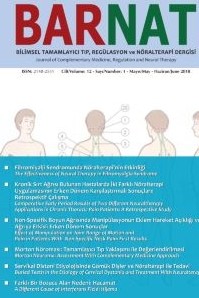SAĞLIĞIMIZ İÇİN TIBBİ BİTKİLER ve BİTKİSEL İLAÇLAR
Fitoterapi, Bitki, Bitkisel Tedavi, Eczane, Tıbbi Bitkisel Ürün
MEDICINAL PLANTS AND HERBAL MEDICINES FOR HEALTH
Phytotherapy, Plant, Herbal Therapy, Pharmacy, Medical Herbal Product.,
___
- Schulz,V. Haensel R, Blumenthal M, Tyler V E; Ra onal Phytotherapy Refe- rence Guide for Physicians and Pharmacists, (2004) Springer-Verlag Berlin Heidelberg ISBN :3-540-40832-0.
- DingermanT, Loew D, Phytopharmacology (2003), Wissenscha liche Ver- lagsgesellscaha
- Aranson, JK, Meyler’s Side Eff ects of Herbal Medicines (2008) Elseiver, Ams- terdam ISBN: 978-044-453269-5.
- Houghton P, Mukherjee P, Evalua on of Herbal Medicinal Products (2009),Pharmacu cal Pres, London Chicago, ISBN : 978 0 85369 751 0
- Mills S,Bone K, Principles and Prac ce of Phytotherapy,2.nd edi. (2012),Churchill Livingstone, ISBN : 9780443069925
- Omene C, Kalac M, Wu J, Marchi E, Frenkel K, O’Connor A O, “ Propolis and its Ac ve Component, Caff eic Acid Phenethyl Ester(CAPE) Modulate Breast Cancer Thrapeu c Targets via an Epigene cally Mediated Mechanism of Ac- on”, J.Cancer Sci.Ther.(2013),5.10.
- Grossmann ME, Mizuno N K, Schuster T, Cleary M P, “Punicic acid, a fa y acid from pomegranate seed oil, inhibits breast cancer cell prolifera on”, Cancer Preven on Research: January 2010; Volume 3. 1 Supp. A2
- ürünlerin doğru ve sağlığa yararlı kullanımının sağlanma
- ISSN: 2148-2551
- Başlangıç: 2006
- Yayıncı: Bilimsel Nöralterapi ve Regülasyon Derneği
KALP HIZI DEĞİŞKENLİĞİ ÖLÇÜMLERİNİN KLİNİK TANI VE TEDAVİYE KATKISI
Demet ERDOĞAN, Mustafa EVRENSEL
MSS HASTALIKLARI VE KRANİAL SİNİR DİSFONKSİYONLARINA NÖRALTERAPİ YAKLAŞIMI VE TRİGEMİNAL NEVRALJİ
SAĞLIĞIMIZ İÇİN TIBBİ BİTKİLER ve BİTKİSEL İLAÇLAR
ULUSLARARASI KATILIMLI VI. NÖRALTERAPİ KONGRESİ 02.-05 Haziran 2016, İstanbul
OKSİDATİF STRES VE SERBEST RADİKALLERİN VÜCUT ÜZERİNDEKİ ETKİSİ
Mustafa KARAKAN, Hüseyin NAZLIKUL
GÖMÜK KANİN ve MOLAR DİŞ KAYNAKLI KRONİK AĞRIDA NÖRALTERAPİ
Tijen Secerli DÜRER, Mustafa KARAKAN, Hüseyin NAZLIKUL
2017 BARNAT grubu Dernekler Eğitim-Kongre-Sempozyum Bilimsel Program
Tüketim toplumuyuz. Çok hızlı tüketiyoruz hem de her şeyi. Parayı, sevgiyi, zamanı, bilgiyi…
DİYABETİK VE ALKOLİK POLİNÖROPATİDE NÖRALTERAPİNİN ETKİNLİĞİ
